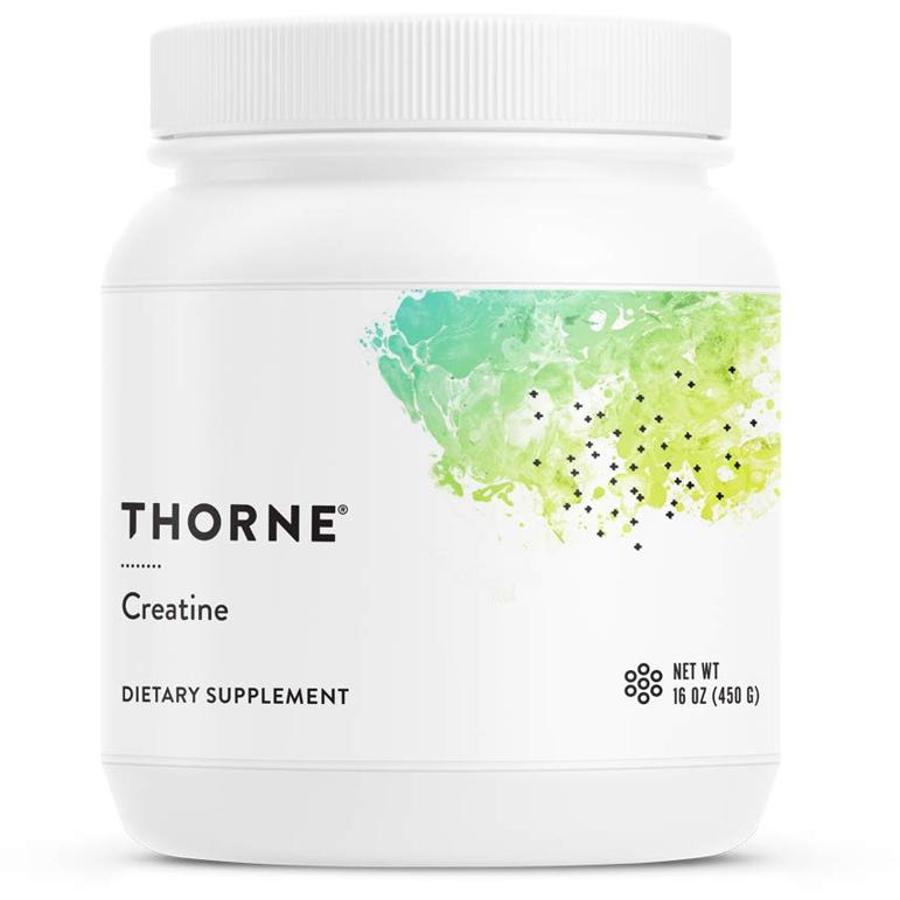Understanding Creatine: What is it and How Does it Work?
Creatine is a popular supplement among athletes, bodybuilders, and fitness enthusiasts. It is known for its ability to enhance exercise performance and promote muscle growth. If you’re someone who is researching creatine supplements and wants to know more about how they work and what they are recommended to take for, this article is for you.
What is Creatine?
Creatine is a naturally occurring compound that is found in small amounts in certain foods, such as meat and fish. It plays a crucial role in the body’s energy production system, particularly during high-intensity, short-duration activities. When you consume creatine, it gets stored in your muscles as phosphocreatine, which can be rapidly converted into ATP (adenosine triphosphate), the primary source of energy for muscle contractions.
Product Spotlight
Aggregate Rating
Our Rating
Thorne Creatine is a high-quality supplement designed to enhance athletic performance. It supports muscle strength and power, improves exercise capacity, and promotes faster recovery. With its pure and clinically tested formula, it's a reliable choice for athletes and fitness enthusiasts alike.
Natural sources of creatine:
Red Meat
- Overview: Red meat, which includes beef, lamb, and pork, is one of the richest natural sources of creatine.
- Creatine content: On average, red meat contains about 2 grams of creatine per pound.
- Considerations: While red meat is a great source of creatine, it’s also higher in saturated fats than other sources. Those looking to increase their creatine intake through diet should consider the type and cut of red meat and aim for leaner cuts when possible.
Fish
- Overview: Certain types of fish, especially herring, salmon, and tuna, are good sources of creatine.
- Creatine content: Fish generally has slightly less creatine than red meat, averaging around 1.4 to 2 grams per pound depending on the type.
- Considerations: Fish not only provides creatine but is also an excellent source of omega-3 fatty acids, which have numerous health benefits. However, be mindful of mercury levels in certain fish, like tuna, and aim for wild-caught when possible.
Poultry
- Overview: Poultry includes chicken, turkey, and duck. While they do contain creatine, it’s in smaller amounts compared to red meat and certain fish.
- Creatine content: Poultry contains about 0.5 to 1 gram of creatine per pound, with turkey typically having slightly more than chicken.
- Considerations: While poultry has less creatine than red meat and fish, it’s leaner and can be a healthier option for those watching their fat intake. Free-range and organic options might offer better nutritional value.
How Does Creatine Work?
Creatine works by increasing the availability of ATP in the muscles, which allows for more intense and prolonged exercise. It primarily affects the anaerobic energy system, which is responsible for short bursts of high-intensity activity. By supplementing with creatine, you can increase the phosphocreatine stores in your muscles, leading to improved performance in activities like weightlifting, sprinting, and jumping.
Process of creatine supplementation and its effects on energy production:
- Loading Phase: To quickly saturate your muscles with creatine, a loading phase is often recommended. During this phase, you take a higher dose of creatine for a few days to a week. The typical loading dose is around 20 grams per day, divided into multiple servings.
- Maintenance Phase: After the loading phase, you can switch to a lower daily dose of creatine to maintain the elevated creatine levels in your muscles. The typical maintenance dose is around 3-5 grams per day.
Benefits of Creatine Supplementation
Creatine supplementation offers several benefits for individuals looking to improve their athletic performance and physique.
Increased strength and muscle power:
Creatine has been shown to increase strength and power output, making it beneficial for activities that require explosive movements, such as weightlifting and sprinting.
Enhanced exercise performance and recovery:
By increasing the availability of ATP, creatine supplementation can improve exercise performance, allowing you to train harder and longer. It has also been shown to enhance muscle recovery, reducing muscle damage and soreness after intense workouts.
Potential cognitive benefits:
Emerging research suggests that creatine may have cognitive benefits, such as improved memory and cognitive function. While more studies are needed to fully understand the effects of creatine on the brain, it shows promise as a potential cognitive enhancer.
Recommended Dosage and Timing
The dosage and timing of creatine supplementation can vary depending on individual factors, such as body weight, gender, and exercise intensity. Here are some general guidelines to consider:
Dosage guidelines based on individual factors:
- Loading Phase: 0.3 grams per kilogram of body weight for 5-7 days
- Maintenance Phase: 0.03 grams per kilogram of body weight per day
Timing recommendations for optimal creatine absorption:
- Take creatine with a source of carbohydrates, such as fruit juice or a sports drink, to enhance its absorption.
- It’s best to consume creatine before or after a workout to maximize its benefits.
Safety and Side Effects
Creatine supplementation is generally considered safe for healthy individuals when taken as directed. However, it’s important to be aware of potential side effects, which can include:
- Water retention
- Upset stomach
- Muscle cramps
To minimize the risk of side effects, it’s recommended to drink plenty of water when taking creatine and to follow the recommended dosage guidelines.
Conclusion
In conclusion, creatine is a widely used supplement that can enhance exercise performance, increase muscle strength and power, and potentially offer cognitive benefits. It works by increasing the availability of ATP in the muscles, allowing for more intense and prolonged exercise. When considering creatine supplementation, it’s important to consult with a healthcare professional and follow the recommended dosage and timing guidelines.
References:

